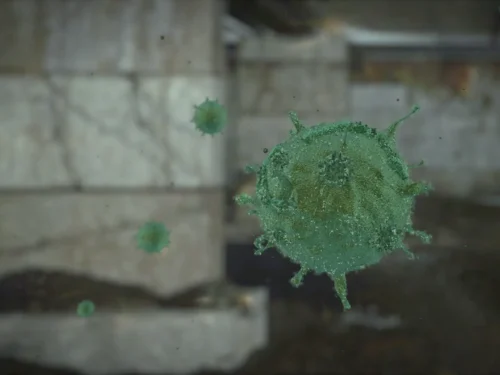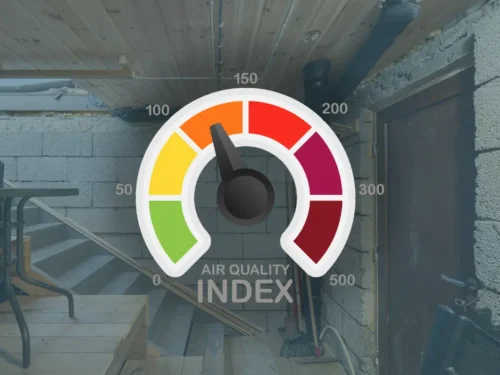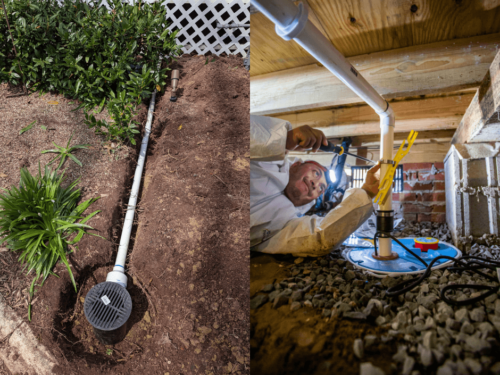The foundation acts as your property’s glue, keeping everything together. A sinking foundation leads to dangerous living conditions and extensive repairs. Knowing the causes and consequences of a sinking foundation can help you stay one step ahead of repairs and learn how to prevent the same problems from recurring.
What Causes Your Home’s Foundation To Sink?
Homes should withstand minor shifting and settling over time without substantial concerns. When the ground isn’t stable enough to handle this shifting, or your home’s building materials cannot withstand the movement, you may end up with a sinking foundation. Here are some of the most common causes of a sinking house foundation:
Compaction and Soil Erosion Effects
Over time, the soil under your house becomes compacted from the weight of your foundation. Many factors can affect how compaction affects your foundation.
For example, various soil erosion or water drainage effects may cause increased compaction near the foundation’s center. In this scenario, your home’s foundation could bend inward.
House foundation repair teams may use soil stabilization techniques and soil erosion prevention to keep these issues from recurring. These proactive measures ensure a stable foundation, especially if the land your property sits on is susceptible to changes in climate.
Hydrostatic Pressure Impact
Increased hydrostatic (water) pressure can push against your foundation, causing sinking or shifting. Your foundation’s material will also affect the hydrostatic pressure, as some materials expand more from temperature and saturation changes, causing additional damage. If you have expansive soil, like clay, under your house, you may experience rapid foundation shifts between seasons as moisture levels fluctuate.
Your concrete foundation contractors should understand expansive soil and its impact so they can employ the proper hydrostatic pressure mitigation techniques. Expansive soil solutions for foundation sinking prevention may include moisture control, landscaping implementations, soil additives, etc.
Poor Construction Practices
When homes are built on inadequately prepared sites, or builders use substandard materials, the likelihood of foundation problems increases. Poorly compacted soil or failure to account for water drainage during construction can lead to foundation sinking over time. Regular inspections during and after construction can help identify potential vulnerabilities before they result in significant house foundation sinking damage.
What Will Happen If Your Foundation Begins Sinking?
So, what happens when house foundations begin sinking? Neglecting to schedule immediate repairs could result in the following:
Substantial Interior or Exterior Damage
Unlike foundation shifting, foundation sinking often causes the entire home to buckle in on itself, causing significant damage gradually. When this happens, you will likely start noticing the following:
- Interior or exterior wall cracks
- Sloping or sagging floors
- Bouncy floorboards
- Difficulty opening or closing doors or cabinets
- Separated countertops or cabinets
- Cracked or warped siding
If any of these sound familiar, you should schedule foundation repairs as soon as possible. The consequences will only worsen over time as the foundation continues sinking.
Increased Energy Costs
A sinking home foundation can also lead to poor insulation. Gaps and cracks caused by a shifting foundation allow air to escape, making your heating and cooling systems work harder. This can result in noticeably higher energy bills. Addressing these issues promptly not only protects your home but also saves you money in the long term.
Plumbing Problems
An uneven foundation can create significant plumbing problems, as your home’s pipes will no longer be able to flow correctly. You may see pooling water in sinks or tubs due to unlevel drainage; you might also encounter flow issues from pinched pipes. As plumbing issues worsen, pipes could leak or burst, leading to significant water damage, mold growth, and additional structural concerns.
Pest Infestations
Cracks and gaps in a sinking foundation can also create entry points for pests, such as insects and rodents. These infestations can lead to further structural damage and pose health risks to your family. Sealing foundation cracks and scheduling timely repairs can help prevent these unwanted guests from entering your home.
Threats to the Home’s Structural Integrity
Sinking foundations represent a growing threat to your home’s structural integrity. Without repairs, a sinking foundation can make the entire property inhabitable because of hazards like collapses. You don’t want to leave your family or investment at risk, so you must schedule prompt repairs as soon as any shifts in your foundation become noticeable.
How Dangerous is a Sinking House?
Many homeowners wonder, “Is a sinking house dangerous?” The answer is a resounding yes. A sinking home foundation compromises the safety of your property by weakening its support system. Delayed repairs not only increase the risk of total collapse but also raise repair costs as damages worsen over time. If you suspect your house foundation is sinking, take immediate action to safeguard your home and family.
Schedule Foundation Repair Services Today Before the Damage Worsens
At Virginia Foundation Solutions, we provide expert foundation repair services with free inspections to determine the best solution for your property.
Don’t wait until the issue becomes critical. Our team specializes in addressing house foundation sinking issues promptly and effectively. From diagnosing the root cause to implementing durable solutions, we ensure your home’s foundation is restored to its full integrity.
Now that you know the dangers of a sinking foundation, call Virginia Foundation Solutions at (757) 340-0917 for a free property inspection, or see your most popular questions answered here.







